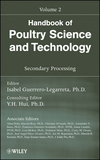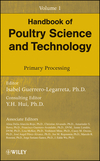During its consideration of the 2014 Agriculture and Rural Development Appropriations Bill, the full House Appropriations Committee adopted an amendment urging the U.S. Department of Agriculture (USDA) to move forward on its proposed rule to modernize poultry inspection.
The amendment, offered by Rep. Jack Kingston (R-Ga.), passed by voice vote with a bipartisan majority.
"Rep. Kingston and the members of the committee from both sides of the aisle are to be commended for their support of modernizing a poultry inspection system that has been in place since 1957," said National Chicken Council President Mike Brown. "In an effort to continue our progress towards reducing foodborne illnesses, we believe, and the committee recognizes, that the poultry inspection system should be modernized to transition to a model that is more science and risk-based."
A pilot program testing this system was put in place in 1999 in 20 chicken plants. It has since been studied, debated and reviewed in depth for more than a decade to assure its effectiveness as to how best modernize chicken inspection while improving food safety, protecting workers and better utilizing USDA resources.
A copy of the text of the amendment is as follows:
"The Committee notes that the current poultry slaughter inspection system has been in place since 1957. On January 27, 2012, USDA proposed a science-based rule that would begin to replace this outdated approach, and replace it with one that is based on pathogen reduction and control. USDA inspectors would monitor establishment process controls in removing diseased birds, ensure compliance with Hazard Analysis Critical Control Point plans and Sanitation Standard Operating Procedures, conduct ante mortem inspection, and collect samples for pathogen testing. On-line inspectors will still conduct carcass-by-carcass inspection to ensure that diseased carcasses are condemned by establishment workers according to regulatory requirements. The Committee believes that implementation of this system, that has been tested over ten years, will lead to a reduction of pathogens in poultry and a corresponding reduction in foodborne illnesses, hospitalizations, and deaths. The Committee urges the Department to finalize this rule."
Source: National Chicken Council








